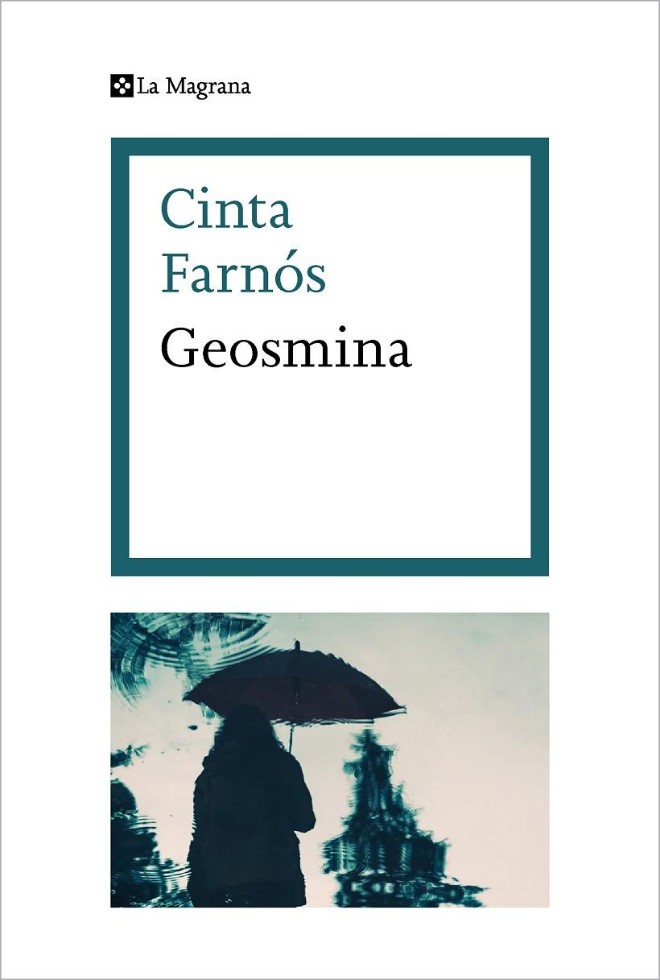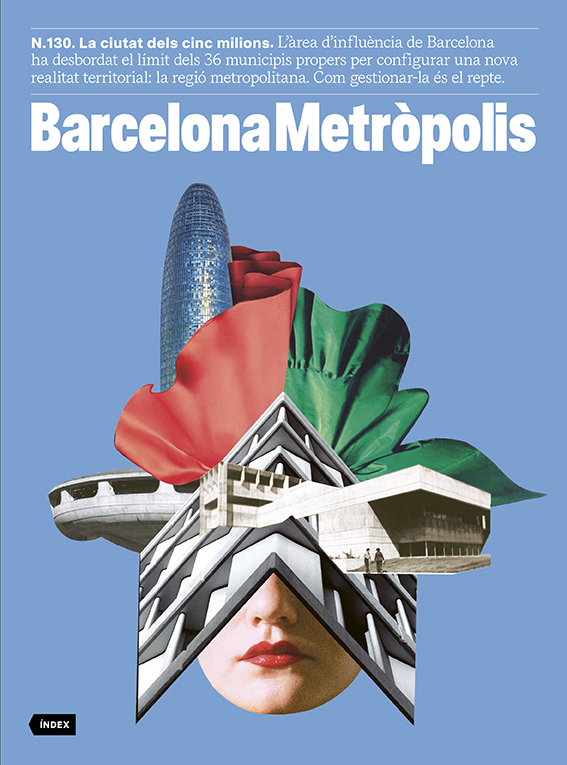Other people’s affairs
- The Story
- Apr 24
- 7 mins

When she gets home, it’s half past eight in the evening. She sets down the grocery bags – long handle adorned with Modernist iron filigree. Such porosity, such marvel, what a resounding click on closing it. What a tactile sensation! – on the floor at the entrance and looks around. There’s nothing blocking her view of the dining room balcony from this end of the apartment where the entrance hall is. No walls, partitions or doors.
Her entire apartment and those of her neighbours, further on, are laid bare, illuminating the Sant Pere sky with their living room and kitchen lights. Casting its glow over everything is the rosy halo of the sun setting behind Collserola.
Every day, the same routine. Now is when she retraces the steps of the previous hours. She recalls, one by one, all the doors she has opened and closed that afternoon, envisioning them lined up one after another, like a continuous series of filters that conceal everything this single-room apartment insists on showing her. When she first moved to the neighbourhood, there were more shops with doors and handles, knobs, grips, levers and latches to open. Now she only has three in her vicinity. The other establishments either open automatically or, worse, are always left slightly ajar, as if doing us a favour.
I couldn’t tell you when this habit began. At first it was happenstance, as is often the case with habits that evolve into addictions. She’d find herself drawn to a shop window, decide to venture inside for a casual browse, and each time she turned to open the door, she’d inevitably be greeted by a shop assistant. “Can I help you?” “What can I get for you, dear?” And with her timid “Nothing, just looking”, she’d cut short the conversation. Yet, by then, a warmth had already begun to settle in her body, a sensation she didn’t feel before going in. Now, depending on the day, she’d prolong the interaction: inquiring about the fabric of a garment, its post-wash shrinkage, whether an item was handcrafted, and by whom and where. All to linger in the ambiance they had suddenly created within those confined spaces – shops adorned with knobs, handles, grips, levers and latches.
 Illustration ©Rebeka Elizegi
Illustration ©Rebeka ElizegiThere are days when she needs the doors, though she senses that what she truly needs are the questions, and the three nearby ones just don’t cut it. If it’s been an especially lacklustre day, she goes for a stroll until she reaches the Diagonal and heads upwards, venturing into neighbourhoods where traditional shops still hold their ground, intermingled with pop-up stores that breathe new life into these elements that she’s fixated on. The phenomenon of knobs, locks, handles, grips and levers thrives in districts or streets situated at the extreme ends of the city’s household income spectrum. While some are still unable to afford automated entrances, others seek to distance themselves from the anonymity that accompanies this progression. Amidst it all, glass doors open automatically, requiring no human touch and mechanisms operate silently, sparing us the effort, noise, attention or even acknowledgement – essentially showing their complete indifference towards us.
This afternoon, I set out from Sarrià and gradually made my way back home. I passed by traditional grocery stores (with their sturdy brass handles and bells in the rear), wine shops that retrained their original barrels (the door slightly ajar, countered by stiff gears), descending diagonally towards the Eixample, where they disappear, and onward to her neighbourhood, Sant Pere, where they resurface. She visited the three nearby establishments, even though she had to take a detour to reach them: the bakery on Carrer de la Princesa, the greengrocers on the corner of Sant Pere Més Baix, and the Andorra bar. Glass doors, thick and weighty, which demanded the strength of half one’s body to open (such pleasure in feeling the resistance of iron or wood against your skin, the sharp squeak, the satisfying click of the latch, precise and flawless, between the bolt and the frame, when you let go). Barriers that compel you to carve out space, to exude presence, readiness and a willingness to inhabit the space they safeguard.
She dreams of walls, bricks, partitions, and even screens. Of ramparts, walls, bastions and gateways. She imagines what it would be like to enter and exit rooms, to separate spaces, smells. To set boundaries. She doesn’t get the fascination with vast lofts in El Poblenou and wanting to pay high prices for old single-room workshops with freight elevator lifts, devoid of spots to hide from family, strangers, or even oneself, almost.
Now, in her mind’s eye, facing the window of her balcony, she’d arrange all the doors she’s gone through this afternoon. She’d line them up before her in this singular space without barriers or limits, if only there were any. But there weren’t. Her entire life, and consequently that of others, is laid bare in this “singular space, loft, apartment” at the heart of the Sant Pere neighbourhood. “Breathtaking views of the square Plaça de Sant Agustí Vell”, they promised. “So you needn’t be separated from guests while cooking dinner and they are in the living room”. What they neglected to mention is that her sole guests would be the neighbours, also residing in compartment-less flats, appearing before her like another extension of her dining room. And, inevitably, she sees her. Despite all the doors she has closed with her eyes shut. Despite wanting to inhabit the apartment without having to see. Despite wanting to tear out her eyes. She sees the neighbour.
Despite all the doors she has closed with her eyes shut. Despite wanting to inhabit the apartment without having to see. Despite wanting to tear out her eyes. She sees the neighbour.
She hurries to close the shutters of the windows and rid herself of the toothless old woman slurping her soup from inside her apartment, but the wood is swollen from the damp and age and doesn’t close properly, and the light and the image, and the woman and the soup continue to seep through the gaps between the slats. When she can no longer bear it, she curls up in the blind corner, an obscure angle of her apartment next to the balcony, concealed from the other side. A hiding place from where she can’t see anything either. Though she knows she’s still there. A lone woman, a soup and a yogurt, an apartment with no furniture other than a three-seater sofa and a TV with noisy ads and garish colours. She would like to erect partitions, but she can’t. To be blind if need be. With no doors or walls, she can’t hide from the poverty of others, a plight she shares and that haunts her, reminding her that she can no longer afford partitions or apartments with more than one room.
She decides to head downstairs and seek warmth, which at that hour can only be found at the Andorra bar. From the moment she sets foot on the cobblestones, she already knows what awaits her: the massive handle that occupies the entire width of the glass (the worn golden hue along the edges). She opens it with deliberate slowness and takes a seat at the bar. The waitress had bid her farewell just half an hour previously, during her afternoon door-to-door route, and now merely poses a statement with a hint of a question at the end: “A beer?”, as if it were just another drink she’s had before. She places it on the counter and goes off to serve other people. She takes small sips of the beer and watches her out of the corner of her eye. She senses what the waitress saw in her eyes as she served the drink: a longing to pluck them out to avoid seeing the loneliness mirrored in hers.
Recommended reading
 Geosmina La Magrana, 2022
Geosmina La Magrana, 2022
The newsletter
Subscribe to our newsletter to keep up to date with Barcelona Metròpolis' new developments




